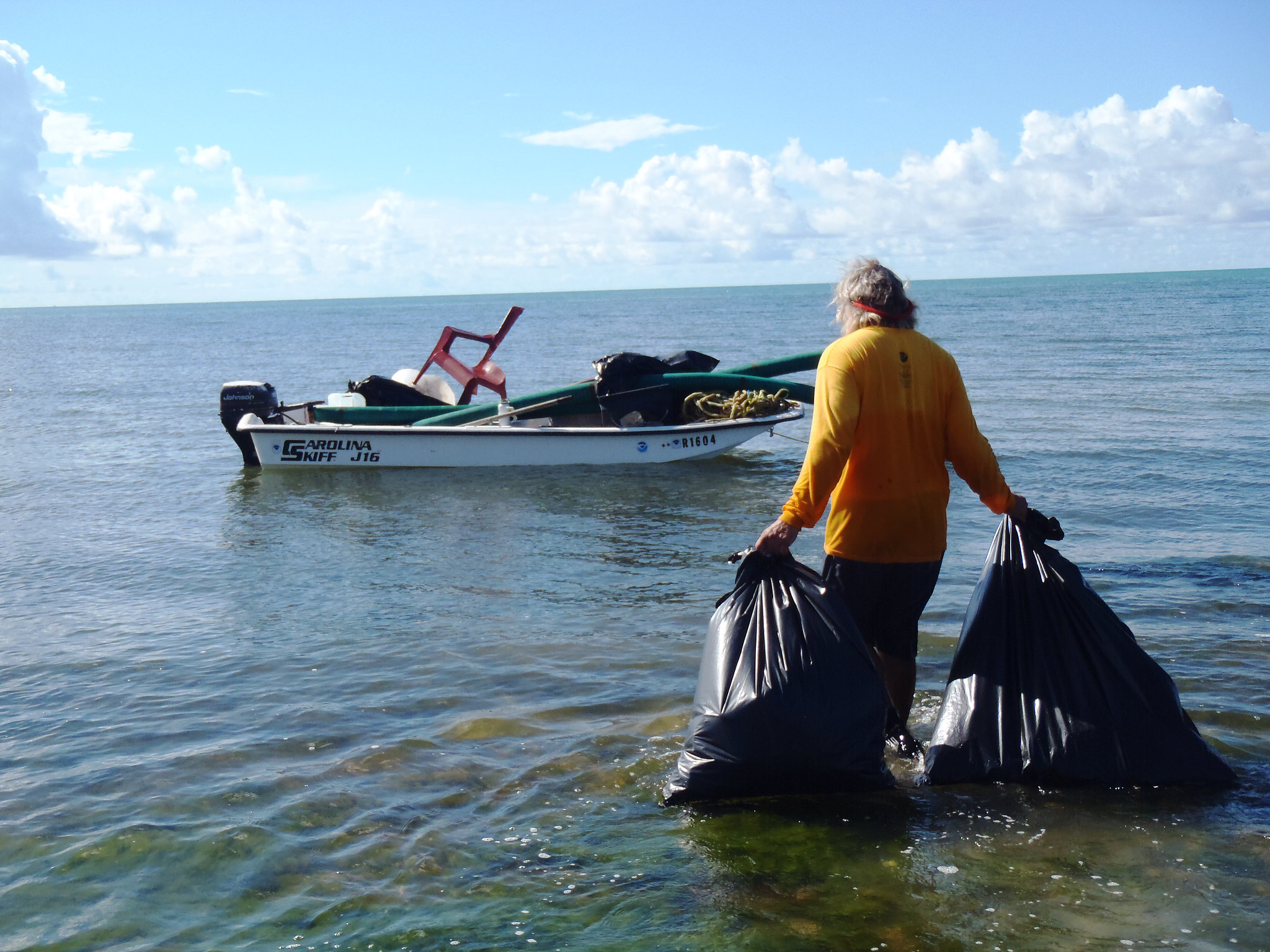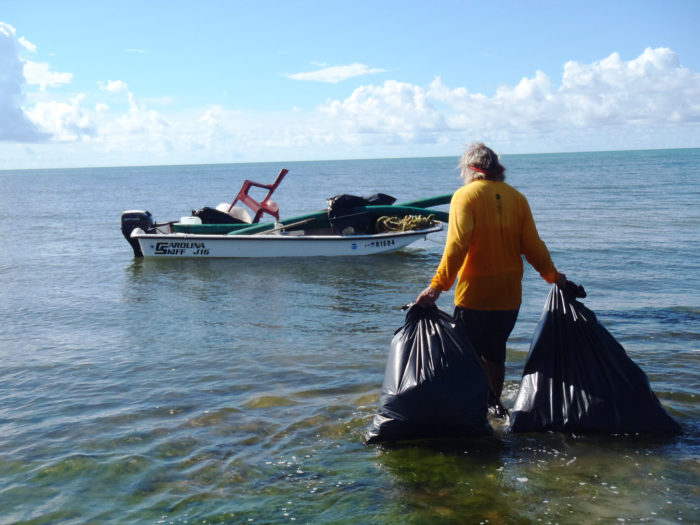
New Year, Big Blue: 2020 Resolutions for the Ocean

Still looking for your 2020 new year’s resolution? Why not commit to adopting a few new habits that reduce your family’s impact on the ocean we all share? With threats like overfishing, marine plastic pollution, climate change, ocean acidification, and coastal development, there are so many small changes you can make to have big benefits for the ocean in the new year! Here are just a few ideas:
- Eliminate as many single-use plastic products from your lifestyle as possible. Heading to the store? Pledge to bring a reusable cloth bag or opt for a paper bag instead of plastic when you forget your own bags. Going to work up a sweat? Bring a reusable water bottle instead of a single-use plastic one. Ordering take-out? Ask the restaurant to keep the plastic utensils.
- Choose sustainable seafood. There are a lot of choices out there, but not all of them are good for us or the health of our ocean. With apps like Seafood Watch by Monterey Bay Aquarium or FishWatch by NOAA, it’s easier than ever to see if your favorite seafood is sustainable and responsibly fished or if better options exist. These apps are great for the grocery store, your favorite restaurants, and even places you go on vacation.
- Try invasive species. Venture out of your culinary comfort zone and try invasive marine species like lionfish, Asian shore crab, snakehead, or blue catfish. Invasive species live in ecosystems not natural to them due to human activity (whether accidental or intentional) and can wreak havoc on their new habitats due to a lack of natural predators, allowing them to reproduce and feed at dangerous rates. One way to reduce the impact of invasive species and raise awareness is to eat them, whether in a restaurant or learning to cook them yourself by buying them from certain grocery store chains. Lionfish, for example, works well as a pizza topping, fried bites, or just blackened!
- Maximize the life of the things you buy. Consumerism sometimes leads us to believe we need new things all the time, whether it is a TV, smartphone, clothes, or other products. However, this often leads to the disposal of perfectly fine items that are either produced using limited resources and energy that contributes to climate change or harm the environment when they are disposed through processes like chemical leaching or the release of methane gasses. By choosing to maximize our use of everything from clothing to electronic devices and everything in between, we can live a modern lifestyle that is friendlier to the planet and our wallets.
- Reduce your carbon footprint. Whether you decide to turn the lights off when you leave a room, set your thermostat to lower temperatures in the winter and higher temperatures in the summer, carpool to work or commute on mass transit, choose slower shipping times for online purchases, or buy produce from a local farmer’s market instead of a grocery store, you can reduce the amount of carbon your lifestyle adds to the environment. You can start by calculating your carbon footprint with the EPA’s free calculator and decide where to make changes to reduce it.
- Choose better lawn maintenance practices. Whether you live on the coast, in the mountains, or somewhere in between, the chemicals we use to fertilize our lawns and gardens can make their way to rivers and the ocean when it rains. Obviously we don’t want chemicals in our water supply, but too many nutrients in the water is also dangerous because it can lead to out-of-control algae growth and lead to dangerous harmful algal blooms, which threaten animals and humans alike. You can naturally fertilize your lawn and garden by using the products of composting, which is a natural way to give our food waste a second life.
- Waste less food. Food waste is a huge contributor to climate change and environmental degradation, both from a production side and the release of methane gasses when food goes to the landfill, all of which contribute to decreasing ocean health. We can reduce our food waste at home by tracking what we throw away, shopping realistically, planning the portions we cook and serve, and saving (and actually eating!) the leftovers we have. When eating at restaurants, we can choose smaller portion sizes, skip things like appetizers and complimentary breadsticks, and holding off on items you don’t like or want, such as French fries or pickles on a sandwich.
- Enjoy responsibly. Whether you like to boat, SCUBA dive, fish, or experience the ocean in another way, you can act responsibly and still enjoy yourself. When boating, for example, we can use mooring buoys instead of anchoring in sensitive areas, and when diving we can make sure to avoid touching coral reefs with our hands and fins (and never taking anything back as a souvenir!). Instead of wearing sunscreens with chemicals harmful to marine species when we experience the ocean, we can choose reef-safe sunscreens or choose to wear clothing like rash guards and hats that physically protect our skin from the sun’s UV rays.
- Get involved! Whether you donate to causes you believe in or volunteer your time for things like citizen science projects or beach cleanups, you can make a direct impact on the future of our ocean. Programs like the annual Ocean Count in Hawaiian Islands National Marine Sanctuary, Goal: Clean Seas Florida Keys in Florida Keys National Marine Sanctuary, or the annual ROV building competition in Gray’s Reef National Marine Sanctuary are all great ways to commit your time to improving the ocean and educating others.
No matter what you choose to change about your lifestyle this year, it will make a big difference for the marine environment we all depend on.
Do you have other ideas for “new year, new you” blue habits? Let us know by sending us a message with your personal pledge!
